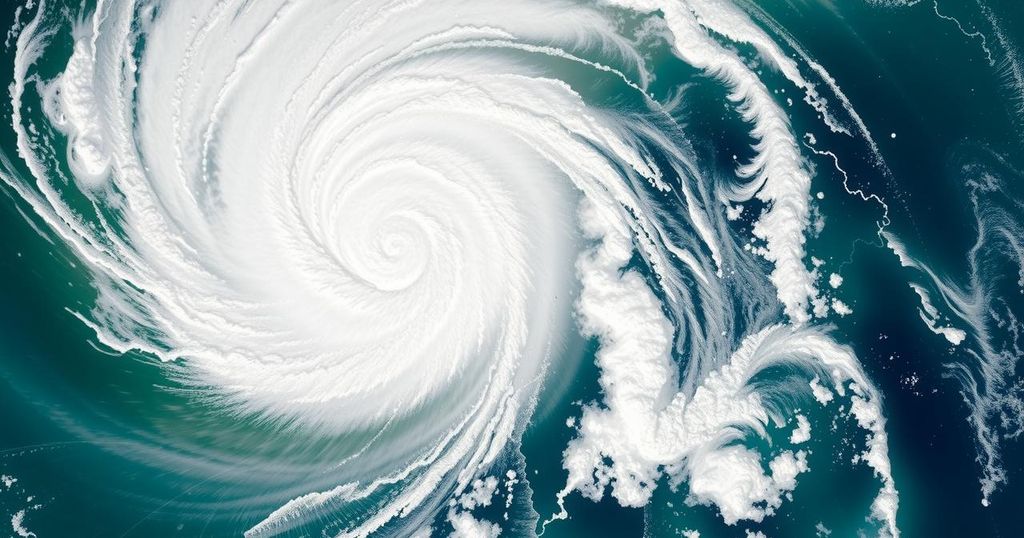World news
AFRICA, CABO DELGADO, CHI, CHIDO, CLIMATE CHANGE, COLIN MCCARTHY, EMERGENCY RESPONSE, FRANCOIS, FRENCH INDIAN OCEAN, FRENCH INTERIOR MINISTRY, METEO FRANCE, MOZAMBIQUE, NATURAL DISASTER, NATURAL DISASTERS, NIASSA, PARTNERS, PEMBA, REUTERS, SOUTHERN MALAWI, UNICEF, XAVIER BIEUVILLE
Ethan Kim
0 Comments
Cyclone Chido Strikes Mozambique After Devastating Mayotte
Cyclone Chido, a Category 4 storm, struck Pemba, Mozambique, on December 15 after devastating Mayotte. With winds exceeding 200 km/h, approximately 1.7 million people are affected. The cyclone’s impact is severe, raising concerns over casualties in Mayotte where entire neighborhoods were destroyed.
Cyclone Chido, categorized as a Category 4 storm, made landfall in Pemba, the capital city of Cabo Delgado province in Mozambique on December 15, following a path of devastation through the French overseas territory of Mayotte. Reports indicated that Chido displayed an impact radius that has extended its effects to southern Malawi, raising concerns over heavy rains, destructive winds, and potential flash floods.
As per the Malawi Red Cross, Cyclone Chido was tracked at 14:05, exhibiting significant influence over regions including northern Mozambique. The International Organization for Migration reported that approximately 1.7 million people have been affected by the cyclone across Cabo Delgado, Nampula, and Niassa, with winds surpassing 200 km/h and severe rainfall damaging infrastructure and homes.
UNICEF expressed deep concern regarding the ramifications of the cyclone on the already vulnerable population in Mozambique and stated that essential response efforts were underway in collaboration with local partners. Shockingly, prior to reaching Mozambique, Cyclone Chido inflicted severe damage upon Mayotte, where entire neighborhoods were obliterated and casualties are feared to be in the hundreds, if not thousands.
In statements made to local media, Francois-Xavier Bieuville, the Prefect of Mayotte, suggested that accurately determining the death toll may prove challenging due to the island’s Islamic burial traditions, which require that the deceased are buried within 24 hours. Meteo France, the official French weather agency, characterized Cyclone Chido as the most severe weather event to impact Mayotte in over nine decades, further emphasizing the cyclone’s exceptional intensity.
Cyclone Chido’s formation and trajectory highlight the increasing occurrences of powerful tropical storms influenced by climatic changes. The cyclone has caused unprecedented destruction in the region, indicating a need for robust disaster preparedness and response mechanisms, particularly in vulnerable populations within Mozambique and Mayotte. Prior to the cyclone’s landfall, weather experts had been monitoring its development, showcasing the importance of timely warnings and international cooperation during such disasters.
The aftermath of Cyclone Chido has left significant devastation in its wake, particularly in Mayotte and northern Mozambique. With reports indicating severe impacts on millions, enhanced response efforts are necessary to mitigate the disaster’s effects. Given the cyclone’s unprecedented nature, continuous monitoring and humanitarian assistance will be vital to recovery initiatives in the affected regions.
Original Source: www.downtoearth.org.in




Post Comment